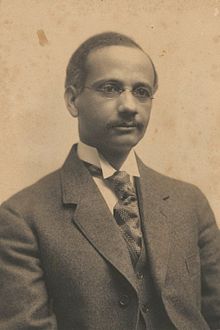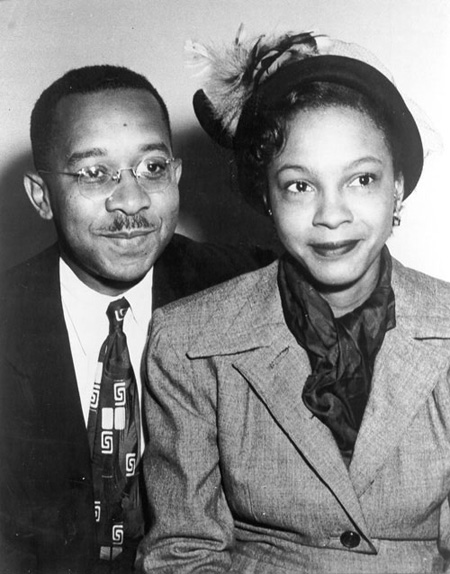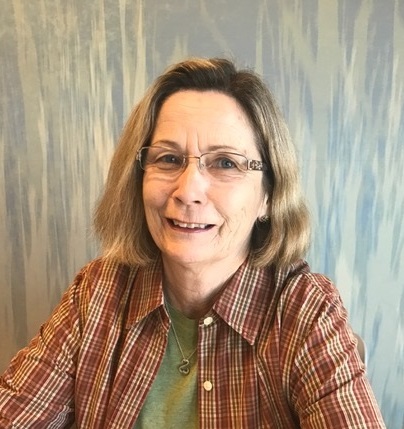February 2017 E-Newsletter
Friday, February 24, 2017
Black Mental Health Pioneers
Black History Month observances frequently reveal surprising, overlooked contributions that African Americans have made to the world, amidst past and present struggles. A plethora of both can be found in the mental health field.
According to Mental Health America, “historical adversity, such as slavery and race-based exclusion from health, educational, social and economic resources, translates into socioeconomic disparities experienced by African Americans today. In turn, socioeconomic status is linked to mental health challenges: People who are impoverished, homeless, incarcerated or have substance abuse problems are at higher risk for poor mental health, and experience barriers to access in quality services and care.” Hence, African Americans are at a high risk for poor mental health. In fact, US Health and Human Services Office of Minority Health studies show that African Americans are 20% more likely to experience serious mental health problems. Those living below poverty are three times more likely to report serious psychological distress than those living above poverty. And to compound the struggle is the concern that mental health care practitioners are not necessarily culturally competent. Some black patients have reported racism and micro-aggression from therapists.
Troubling statistics and their root in racial oppression are not the entirety of the African American story as it relates to mental health. Some African Americans working in mental health have made trailblazing contributions that directly impact the black community, specifically, as well as the world at-large. Read on to meet a few of those pioneers.
 Solomon Carter Fuller, MD, America’s first black psychiatrist, worked alongside Dr. Alois Alzheimer, who first discovered the traits of Alzheimer's disease in 1901. Through examining the brain tissue of Alzheimer's patients, Dr. Fuller discovered that this particular form of dementia was an actual disease, and not due to senility. His groundbreaking research supports our modern understanding of Alzheimer's. A graduate of Boston University Medical School, Dr. Fuller spent the majority of his career working as a pathologist at Westborough State Mental Hospital in Massachusetts. In 1974, Boston University opened the Dr. Solomon Carter Fuller Mental Health Center, which provides psychiatric
Solomon Carter Fuller, MD, America’s first black psychiatrist, worked alongside Dr. Alois Alzheimer, who first discovered the traits of Alzheimer's disease in 1901. Through examining the brain tissue of Alzheimer's patients, Dr. Fuller discovered that this particular form of dementia was an actual disease, and not due to senility. His groundbreaking research supports our modern understanding of Alzheimer's. A graduate of Boston University Medical School, Dr. Fuller spent the majority of his career working as a pathologist at Westborough State Mental Hospital in Massachusetts. In 1974, Boston University opened the Dr. Solomon Carter Fuller Mental Health Center, which provides psychiatric  outpatient services, in honor of Dr. Fuller's work in neuropathology.
outpatient services, in honor of Dr. Fuller's work in neuropathology.
Mamie Phipps Clark, PhD and Kenneth Clark, PhD were a couple who provided key research used in the historic 1954 Brown v. Board of Education ruling which declared segregation in public schools unconstitutional. Their famous doll experiments revealed internalized racism and other psychologically damaging effects of segregation on African American children, as they found study participants consistently preferred white dolls over brown ones when given the choice. Throughout their lives, they conducted experiments on racial biases in education, the impact of race on child development, and testified as expert witnesses in several other school desegregation cases. The Clarks were the first African-Americans to obtain their doctoral degrees in psychology from Columbia University, and Dr. Kenneth Clark was also the first African American to be president of the American Psychological Association.
Caregiver Highlight: Pat Yashenko
When you ask around the halls of Continuum about nurse Pat Yashenko, an LPN at Continuum Home Health, the immediate reaction is, “Oh Pat!” 
At first, people seem at a loss for explanation, as if “Oh Pat” was all encompassing and speaks for itself. But, when prompted further, you get the sense that Pat’s peers and managers are at a loss because it is difficult to succinctly describe her and select among the myriad stories that exemplify her drive, passion and deep concern for her patients.
Additional words like perseverance, passion, compassion and advocacy. Take advocacy, for example. Pat consistently advocates for her patients with doctors, pharmacies, administration, and peers when she believes the patient needs or is deserving of something that they are not yet getting.
Then, there’s perseverance. When Pat goes out for a home care visit and finds that the patient isn’t home, she’ll go back the same day a second, third, forth, and even fifth time to make sure he or she is OK and receives the needed nursing care. In addition, she is known to voluntarily take on difficult patients with challenging behaviors and quickly earns their trust.
When Pat seemingly hits a wall in trying to help her patients, she cuts out a door to create new possibilities, even if what is needed doesn’t fall under her job description. For example, one of Continuum’s clients bikes to work. One day, the bicycle got stolen. Pat raised money through friends and co-workers and got him a new bike.
Another patient was in need of a lung transplant and was scheduled to go to New York for the procedure. He had no car and he had significant emotional difficulties using public transportation. Pat was determined to break down these obstacles so some way she hired a limousine to take the patient to New York for his evaluation.
Donations are essential in Pat’s world. She has raised funds and donated her own money for compelling circumstances her patients have endured. She is also a frequent “shopper” at our donation center, rummaging through generously donated goods for things she knows her patients need.
Her colleagues are moved by Pat’s compassion: "She perseveres in advocating to try to help her patients, and you just can’t say no to Pat or the cause she is advocating. She goes far above and beyond. She is the kind of nurse you would want for yourself or a family member.”

View Article List